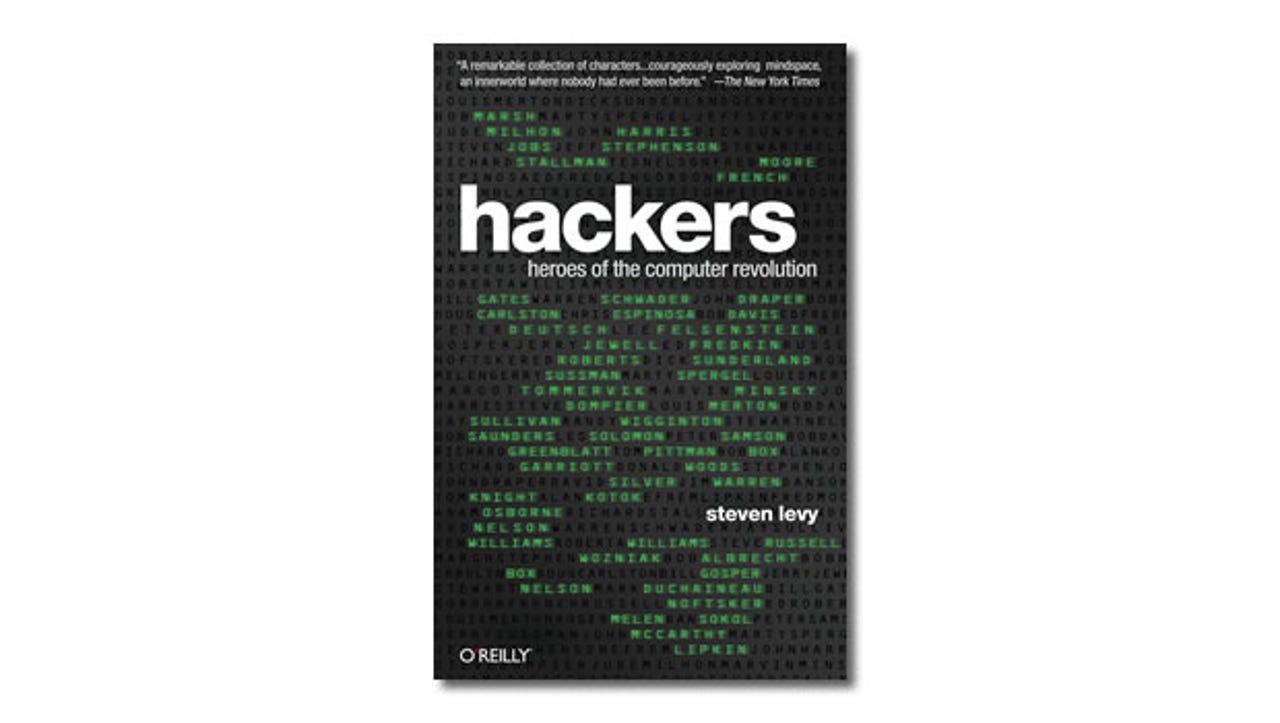Hackers - 25th Anniversary Edition

Twenty-five years ago the term 'hacker' didn't mean a cybercriminal, and the few who used it meant it as high praise. When Hackers first came out in 1984, Steven Levy was documenting how thirty years of brilliant and eccentric geeks (who were more interested in bending technology to their will than in building businesses, or even in what computers can actually do) had somehow produced a personal computer revolution that was about to sweep into every home. He was doing it on their own terms, in their own words; trying to define what a hacker was (the 'hacker ethic of sharing, openness, decentralization') while suggesting that human nature is always part of the computing world and pointing out that many of them had grown up, moved on or been superseded.

The original edition finished with a slightly mournful section on Richard Stallman as the (self-proclaimed) 'last of the true hackers'. The 25th Anniversary Edition updates the book with new material on Steve Wozniak, Mark Zuckerberg and tackles the question of whether hacking has a future. It's also a wonderful opportunity to see how much of the original hacker ethic has survived, and to wonder whether the early MIT hackers of the 50s and 60s would recognise anything of today's computing philosophy.
The original sections on MIT, the silicon valley hardware hackers of the 70s and the independent games developers of the 80s are both picturesque and enlightening, with a mix of anecdote and commentary that makes you feel you know the hackers. It provides a sympathetic view of the people involved, despite the inherent contradictions of many of their views. It's far from a comprehensive history, especially as the scale of the computing world grows through the 70s and 80s, but that's because Levy sticks to his focus on hackers, following them into the gaming world as that becomes the new frontier.
It's interesting to note 25 years on that this sympathetic view of the obsessive approach and wilful blindness of the hacking ethos lets you see how the tensions of today's computing questions — and the negative connotations of hacking and security breaches — were inherent all along. The MIT hackers would break into storage areas to steal parts because a million-dollar computer sitting idle for want of the 75-cent component you need to fix it isn't logical. Their focus on getting things right was confrontational and exclusive, and the society is male and misogynistic (women who would be technical enough to be in charge of the on-board computers for the Apollo moonshot don't become part of the MIT hacker world). Apple's first modem was designed by legendary phone phreaker Cap'n Crunch — and cancelled because it could be used for making free phone calls and war-dialling other people's computers.
Developers of early home computers are conflicted over bringing technology to the masses, when that same technology can be used by the military or turned into a way to undermine privacy. Questions of piracy and sweatshop labour also appear as soon as there is software and hardware. Tellingly, Levy points out that it was easy to maintain the 'hacker ethic' of sharing and improving products rather than paying for them when it came to pirating the Altair BASIC that Bill Gates wrote, but not when the hackers have ended up running their own companies with shareholders. And the same gaming companies that reverse-engineered Atari's programming model pioneered copy protection…
If you don't already have a copy of Hackers this is the edition you should get (and if you have any interest in the world of computing and the people who inhabit it, you should get and read a copy). The additional material doesn't have anything like the same breadth or depth as the original sections, and what they mainly do is whet your appetite and make you draw your own conclusions about how many hackers are really left today and what they're working on. There are new insights into people you think you've already heard everything about (the picture of Zuckerberg constructing complex social groups of Teenage Mutant Ninja Turtles is the kind of detail you want to hear much more about). It's also interesting that Levy turns to Bill Gates — originally covered only as the writer of the famous letter asking people to pay for Altair BASIC rather than pirating it — for a view on where hacking might go next.
But the new edition is also disappointing. Levy mentions Linux only once (as an appendix to GNU) and brushes past questions such as the flaws in modern programming techniques, hacking massive data sets, the way hacker values may have changed the business world for startups and where hackers might appear next (open-source hardware hacking and biotech). There's none of the wealth of detail here that made the original book so fascinating. More than anything, the extended afterword makes you wish Levy had sat down and covered the last 25 years in the same insightful depth at which he tackled the first 30.
Hackers: Heroes of the Computer Revolution - 25th Anniversary Edition By Steven Levy O'Reilly Media 528pp ISBN 978-1-4493-8839-3 £16.99
Mary Branscombe